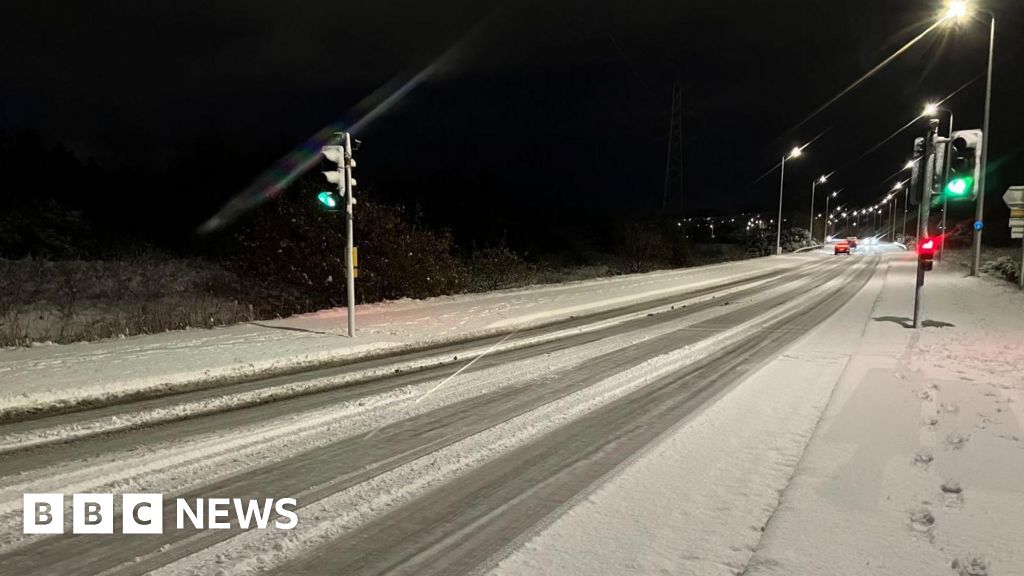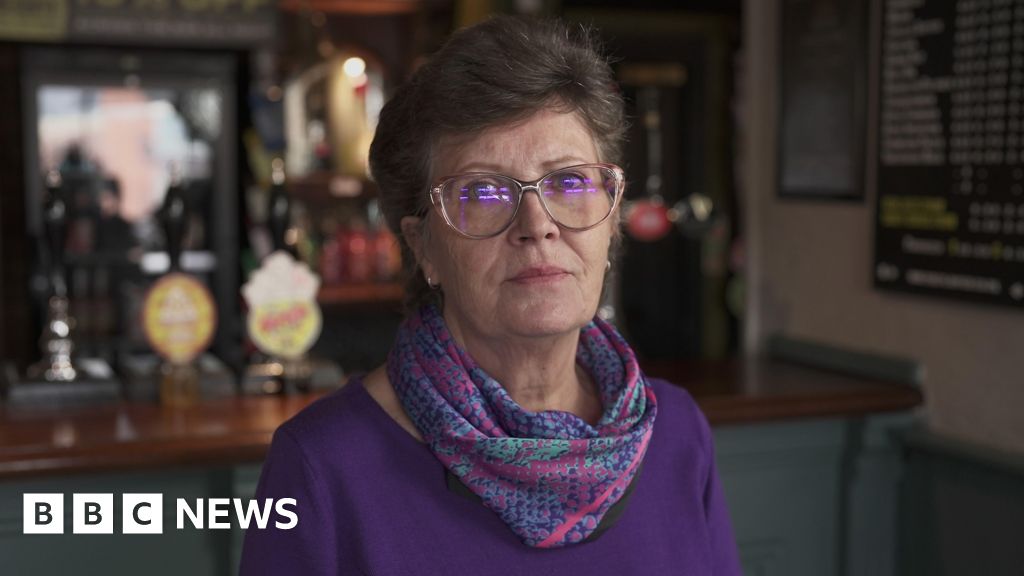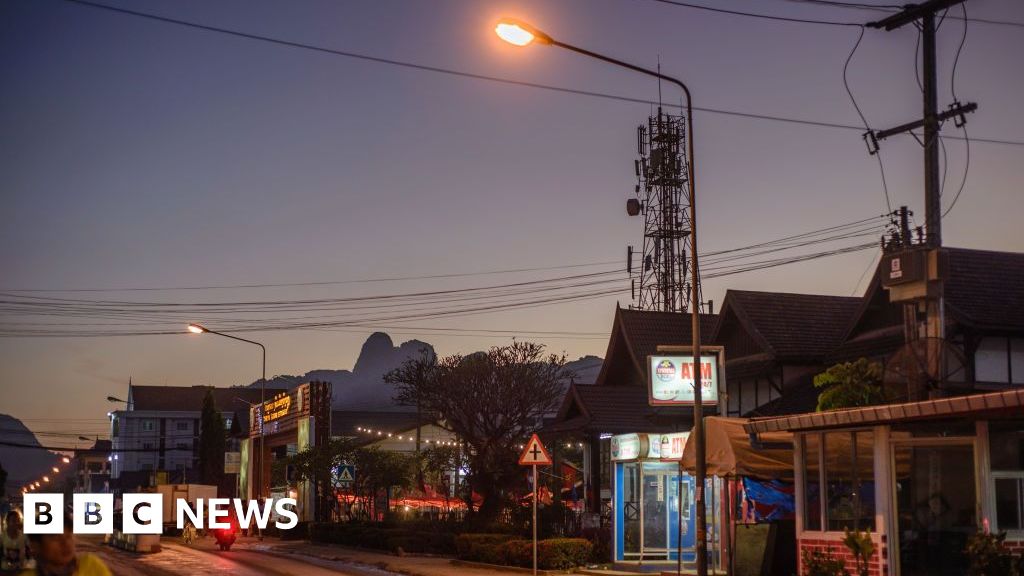
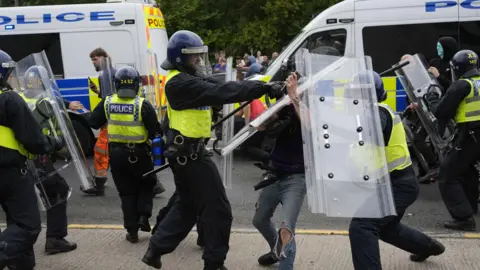 Danny Lawson/PA wire
Danny Lawson/PA wire
The violence following the killing of three girls in Southport last summer was fuelled by misinformation
Almost £2m has been claimed under the Riot Compensation Act (RCA) in response to widespread disorder across the UK last summer, the BBC has discovered.
According to figures from the Association of Police and Crime Commissioners (APCC), shared exclusively with the BBC, 88 separate claims have been registered.
The riots broke out after three young girls were killed in a knife attack at a children's dance event in Southport, and subsequent misinformation the suspect was an asylum seeker.
The APCC said figures would likely change, and did not represent the total of what might be paid. The Home Office said most money paid out is expected to come from local budgets for police commissioners or mayors.
In the days following the Southport knife attack on 29 July, hundreds of people were involved in acts of violence targeting property entirely unrelated to the event.
In towns and cities across England, buildings were vandalised, including mosques and hotels housing asylum seekers.
Shops were looted, cars damaged and a library was set on fire.

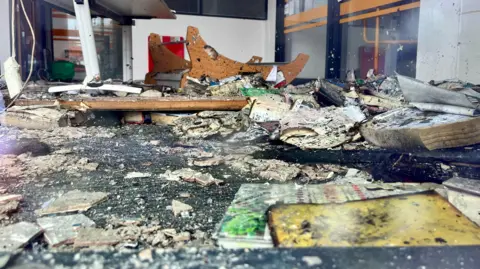
Spellow Library received £250,000 in donations after it was set on fire - Liverpool City Council says this will cover the cost of the repairs and enhancements
What is the Riot Compensation Act?
Under the RCA, people can claim for their personal or business property if it is not adequately covered by insurance for the damage, destruction or theft resulting from a riot.
This can also be claimed by a representative, and insurers can claim for reimbursement after paying a claim in part or in full by a person affected by riots.
In most cases, any money that is granted comes from the claims authority, which is usually the police and crime commissioner for the area where the riot took place or the local mayor’s office.
As people can only claim under the RCA if the damage is not covered by insurance, the actual total financial cost of the riots is likely to be much higher.
Who are people asking for riot compensation?
The APCC is aware of 88 claims under the RCA, worth about £1.9m, but it does not wish to publicly identify which areas they have come from.
The BBC sent Freedom of Information (FOI) requests, which have revealed requests to claims authorities in Cleveland, Staffordshire, Humberside, Durham, Greater Manchester, Derbyshire and Merseyside.
It has not yet been confirmed whether the claims have been successful.
Merseyside's police and crime commissioner received 30 claims, totalling £799,446.79 - the largest amount by any claims authority that the BBC holds information for.
Merseyside Police and Crime Commissioner Emily Spurrell said: “Having spent time in some of the areas affected by the shameful scenes of violence and disorder, it was quite clear to see the scale of damage to properties and vehicles.
“It’s vital that everyone affected by these appalling incidents can access the financial support to which they are entitled, which is why I encouraged people who were uninsured or had been refused compensation by their insurance company to submit a claim through my website under the Riot Compensation Scheme.
“This scheme is in place to make sure all those impacted by the riots get the support they need, and we are now in the process of reviewing the bids submitted.”
Staffordshire's police and crime commissioner received two claims totalling £270,000.
The commissioner’s office confirmed “this follows the violent disorder in Tamworth on 4 August” and claims were currently being assessed.
A mob attacked the Holiday Inn Express hotel in Tamworth, which was housing asylum seekers. Windows were smashed and a fire started as police attempted to keep the crowd back.
Stuart Ellison, Assistant Chief Constable of Staffordshire Police, described the rioters as “baying for blood” and said many of his young officers “feared they weren’t going home that night” after being doused in petrol and pelted with fireworks and petrol bombs.

 Staffordshire Police
Staffordshire Police
Stuart Ellison, Assistant Chief Constable of Staffordshire Police, says the attack on a hotel in Tamworth was "terrifying"
More than 100 asylum seekers were kept safe inside the hotel as the “terrifying" scenes unfolded, Ellison said.
The claims authorities have not confirmed the exact events that individual claims under the Riot Compensation Act relate to.
IHG, the owner of the Holiday Inn brand, declined to comment when approached about riot compensation but has previously said its priority was "the safety and security of our guests and colleagues".

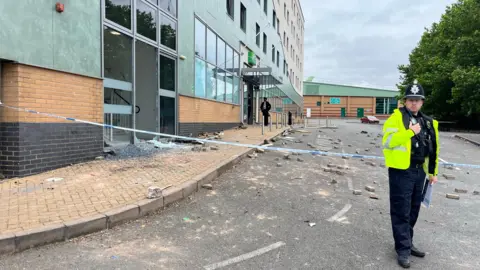
IHG group has not confirmed whether The Holiday Inn in Tamworth has made claims under the Riot Compensation Act
The commissioner’s office in Staffordshire said: “The Home Office have indicated that these costs will need to be met locally, which will place an additional pressure on the overall Police and Crime budget."
A government spokesperson said: “The senseless looting and vandalism of businesses that we saw in the summer was appalling, those responsible are still being brought to justice and the costs of that damage are in many cases still being assessed.
"Ministers across government have been meeting with affected communities and businesses, and we will continue to engage closely on how best to support them.”
They added that police and crime commissioners could apply for grants if they could not cover compensation for victims within their existing budgets.
Additional reporting by Jonathan Fagg and Miguel Roca-Terry

 2 days ago
6
2 days ago
6


